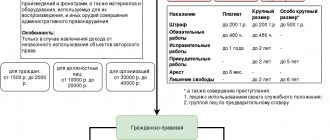In St. Petersburg, cases where cohabitants or family friends are accused of sexual abuse of children have become more frequent. Moreover, in many cases, harassment occurs not just anywhere, but at home. For example, the other day a hairdresser accused her ex-partner of raping her five-year-old daughter. According to the woman, her former lover was engaged in perversion in his apartment in Murino.
Another case occurred in St. Petersburg: a psychologist stated that an unknown person committed sexual assault against a three-year-old child in an apartment in the Primorsky district. Now the pedophile is wanted.
The police were also informed that a 51-year-old turner groped a six-year-old girl while he was playing with her at a friend's house. The man was detained, and the child was checked by a gynecologist. Fortunately, no pathologies were identified.
Our own people are worse than others
Pedophilia is a psychiatric diagnosis. You can’t just blame a person for this, since there are many different nuances, psychologist and head of the psychological center Anna Zavgorodneva .
“This is a very delicate issue; unfoundedly accusing a person of illness and such a crime is very dangerous. If you suspect or express something, then trust can be destroyed with someone who may have nothing to do with it,” said the psychologist.
According to the expert, most often, when talking about child rape, people tell horror stories about stepfathers or “other people’s uncles.” However, in reality, sexual violence most often occurs within families and their immediate social circle. Cases of violence from strangers occur less frequently.
“In 80% of cases, sexual violence occurs from fathers, older brothers, uncles, grandfathers, and close family members. It comes from people you don't expect. In the case of older brothers, there may not be a very big age difference. The situation may occur when the brother already had sexual urges, and the sister or younger brother was available,” Zagorodneva noted.
pixabay.com/ambermb
At the same time, pedophiles may not outwardly reveal themselves. Sometimes, until it comes to trouble, no one has any idea about such deviations of their roommates, relatives or acquaintances. The psychologist advised parents to pay attention to the behavior of people who spend time with their children.
“Pedophilia is a deviation with which a person can be perfectly socially adaptive and have a high level of intelligence. You'll never know until the thunder strikes. It is very difficult to suspect or recognize. You can pay attention to strange games, compliments, attempts to have excessive contact, a great desire to be alone with the child. This can affect girls and boys,” the psychologist advised.
How to protect your child from pedophiles?
The issue of preventing sexual violence is very complex and uncertain. However, first of all, Zavgorodneva advises parents to build a trusting relationship with the child, so that he knows that he can tell his loved ones even about things that he considers forbidden.
“It is very important to develop an understanding of the safety of the child himself. The child should have the feeling that he can tell everything to his parents, at any age. Children are usually anxious, do not speak or cannot explain. The child is five years old, it’s difficult to explain what happened, at most he will show that somewhere it hurts or is unpleasant,” the expert clarified.
There are several signs that can show that something is wrong with your child. He becomes anxious, closed, whiny, his sleep is disturbed, and in general there is a feeling that the child’s life is uncomfortable. If a child is about five years old, then his self-esteem drops sharply, as the psychologist noted, and the student begins to have problems with his studies.
pixels.com/Meru Bi
In addition, the child may hint about something in games or drawings, and therefore Zavgorodneva advises to be attentive to them. The main thing in this matter is not to go too far, so as not to create a problem out of the blue out of worry. The psychologist also advises to be sure to examine the child when washing.
“Sexual violence can be of different types; the child cannot describe what he was forced to do. Therefore, be sure to ask your child: “How did you spend your day? What did you do? What's the news? How did you feel with Uncle Petya? What adventures have you had? What new have you learned?”, recommends Zavgorodneva.
At the same time, you need to ask questions unobtrusively, with a positive assessment. It is important to find out how the child felt at that moment. According to the expert, when questions about emotional experience are asked, children say phrases such as: “I was scared,” “I wanted to come to you,” or something else. After such answers, it is important to find out what scared the child and why. True, such questions need to be asked correctly.
“If the child, before you have received a positive description, purposefully start asking: “Are you sure you weren’t scared?” Are you sure it wasn’t unpleasant?”, then the child will understand that you want a negative connotation and will tell you something negative. Therefore, you should always ask from the positive. If a child says something unpleasant, then we begin to spin it,” the expert said.
pxhere.com/
I became aware that a child had been sexually abused. What to do and where to run?
October 2 marks the UN International Day of Non-Violence. And although it is aimed more at strengthening the culture of peace and tolerance, we decided that this date is to once again touch upon a scary, but incredibly important topic. It's about sexualized child abuse.
We asked the Lawyers Help Children Foundation to prepare for us a detailed analysis of what can be done if you learn about a similar episode that happened to one of the children.
The report on the activities of the Commissioner for Children's Rights under the President of the Russian Federation in 2021 notes that during the indicated year there were 15,822 crimes against the sexual integrity and sexual freedom of minors, which is 7.2 percent more than in 2021 and 79 percent more than in 2012.
Of the 15,822 crimes, 47 percent (7,439) were committed against persons under 14 years of age. At the same time, 21.5 percent (3,030) were committed by a family member, of which 31 percent were committed directly by a parent (937 crimes). Such crimes have a high latency. Especially if they happen in the family.
Sexualized child abuse can be committed in person or online, by parents or relatives, acquaintances or strangers, classmates or older children.
How to tell if a child has been sexually abused
In this article we will talk about what adults should do if they learn that a child has been sexually abused and what to expect during the investigation. We would like to draw the attention of parents that the law makes it possible to make the child’s participation in investigative actions as safe as possible. Don’t be afraid to seek help from psychologists and lawyers. Trust your child and take timely measures to protect him.
At what age can a child give consent to sexual relations?
There is the concept of the “age of consent” - the moment from which a person can decide to engage in sexual contact without criminal legal consequences for their participants.
In Russia this age is 16 years. Until the age of 16, the child’s body is inviolable and any sexual contact with it is unacceptable.
If we are talking about a child who, due to mental characteristics, is not able to understand the meaning of sexual relations, then even after reaching 16 years of age, from the point of view of the law, he can be considered as a person incapable of giving valid consent. A person who knows about such characteristics of a child and enters into sexual contact with him is subject to criminal liability.
What is a manifestation of sexualized child abuse?
performing sexual intercourse with a child in any form;
sexualized touching of the child’s genitals and body with hands, other parts of the body or using any objects;
forcing a child to commit sexualized acts against an adult;
showing a child pornography, sending him messages with sexualized content;
involving a child in the creation of pornographic materials or prostitution.
All of the above actions entail criminal liability under Articles 131–135, 240, 240.1, 242.1, 242.2 of the Criminal Code of the Russian Federation. The younger the victim, the stricter the legal liability for committing sexualized violence against him.
Violence against children in Russia and the world: statistics and laws
Can sexualized violence be committed against a child by other children?
Sexualized child abuse can be perpetrated not only by adults, but also by other children. Violence can be a manifestation of bullying or occur in children's institutions (orphanages or camps). It is important to remember that, depending on the nature of the actions committed, criminal liability for sexualized violence begins at the age of 14 or 16.
It is necessary to tell children from an early age about the inviolability of their own body and the body of another person, about the inadmissibility of committing violence.
Wonderzine magazine and the charity project “They Will Believe You” have written in detail about how to talk to a child about sexualized violence. Cj wrote about what a child needs to know about violence that is sexualized in nature.
I learned that a child had suffered sexualized violence. What to do?
Try to correctly find out what happened: when and where the violence occurred, who committed it. Let your child know that you are on his side and can protect him. Do not judge the child and do not shift responsibility for what happened onto him. Explain to your child that talking about violence is not shameful, and you need to understand what happened in order to help him.
If you are not ready to talk to your child on your own, encourage him to seek help from a psychologist or doctor.
First of all, make sure your child receives medical, psychological and legal assistance. The “Lawyers Help Children” foundation, as well as the organizations “They Will Believe You” and “Violence.Net” *, * will tell you where to go in your city.
If a child talks about being sexually abused by a parent, relative, or classmate, don't try to force a confrontation between them to find out what happened. Protect your child from contact with this person. If you find it necessary to talk to him or her yourself, do not do it in the presence of the child.
* — organizations are included by the Ministry of Justice of the Russian Federation in the “register of NPOs performing the functions of a foreign agent.”
Who can report sexualized violence to law enforcement?
Any person who becomes aware of sexualized violence against a child has the right to report it to the investigative committee. Cases of sexualized violence against minors are criminal cases of public prosecution. To start an investigation (initiate a criminal case), a statement from the victim himself is not required (Part 5 of Article 20 of the Code of Criminal Procedure of the Russian Federation).
For example, if a teacher becomes aware that a child is suffering from sexualized violence at home, he is obliged to report this to the guardianship and trusteeship authorities at the child’s place of residence (Part 3 of Article 56 of the RF IC) and has the right to independently contact law enforcement agencies.
Also, if during an examination of a child a doctor finds traces of violence, he is obliged to report this to the police (clause 5, part 4, article 13 of the Federal Law “On the fundamentals of protecting the health of citizens in the Russian Federation” and Order of the Ministry of Health of Russia dated June 24, 2021 No. 664n).
As a rule, the investigation is carried out at the scene of the crime. Therefore, it is advisable to immediately submit the application to the investigative department of the investigative committee at the place where the crime was committed.
If this is difficult to do - for example, the violence occurred in another city - the application can be submitted to the nearest investigative department of the Investigative Committee or to the police. In this case, it will be handed over to law enforcement agencies themselves.
In your application, provide the facts that have become known to you, indicate the child’s details, contacts of his parents or legal representatives.
It is important to report sexual assault as early as possible. This will help protect the child from further violence and provide him with medical and psychological assistance. Timely reporting of a crime also allows timely collection of evidence, such as recording injuries, collecting biological traces, and so on.
What will happen to the child and his loved ones after reporting violence?
The investigator is obliged to check information about the commission of sexualized violence against a child. He will interview the child and send him for a medical examination. If necessary, the child can participate in checking evidence at the scene of the incident or in conducting an examination.
A child's phone or computer may also be confiscated if the sexualized abuse was committed online. The investigator also has the right to interview the child’s parents and possible witnesses.
The check can last up to 30 days (Article 144 of the Code of Criminal Procedure of the Russian Federation). If during this time the investigator collects sufficient data indicating that a crime has been committed, he will open a criminal case and continue the investigation.
Where can a child get psychological help?
It is very important that at all stages of the investigation the child receives high-quality psychological assistance. You can get information about available help services from organizations that work with survivors of sexualized violence. For example, “They will believe you” and.
Also on the websites “Violence.net” and “Zones of Law”* there are convenient systems (maps) for searching for help services in your region.
* - the organization is included by the Ministry of Justice of the Russian Federation in the “register of media outlets performing the functions of a foreign agent.”
Where to run: where to help children and adolescents affected by sexualized violence
Are there statutes of limitations for cases of sexualized violence?
The statute of limitations is the period during which a person can be held criminally responsible. It is calculated from the day the crime was committed until the moment the sentence in the criminal case enters into legal force.
The statute of limitations depends on the severity of the crime committed. For example, rape of a minor (clause “a” of Part 3 of Article 131 of the Criminal Code of the Russian Federation) is a particularly serious crime, the statute of limitations for which is 15 years.
Using a minor for the purpose of producing pornographic materials or objects (Article 242.2 of the Criminal Code of the Russian Federation) is a serious crime, the statute of limitations for which is ten years.
Forcing a minor to engage in acts of a sexual nature (Part 2 of Article 133 of the Criminal Code of the Russian Federation) is a crime of medium gravity, the statute of limitations for which is six years.
Does a child have the right to a free lawyer?
Yes. Children under 16 years of age who have been victims of sexualized violence have the right to free legal assistance. To do this, parents or legal representatives must submit a petition to the investigator to ensure the participation of a lawyer in accordance with Part 2.1 of Art. 45 of the Code of Criminal Procedure of the Russian Federation. After this, the investigator is obliged to ensure the presence of a lawyer during all investigative actions with the child.
It is important to note that the child has the right to use the assistance of any lawyer, and not just the one presented to him by the investigator free of charge (clause 8, part 2, article 42 of the Code of Criminal Procedure of the Russian Federation).
Children who have suffered from sexualized violence can receive free legal assistance from the Lawyers Help Children Foundation.
Why does a child need a lawyer?
Although the child is accompanied by a legal representative (parent or guardianship specialist) at all stages of the investigation, it is important that he also receives qualified legal assistance.
The lawyer makes sure that all the rights of the child are respected and the entire investigation process is the least traumatic for him.
For example, so that the duration of interrogation of a child does not exceed the limits established by law; so that the child receives high-quality psychological support. The lawyer will also help the child and his legal representatives figure out in which cases an examination is mandatory and in which it can be waived in order to avoid re-traumatization.
The lawyer will tell you what evidence should be provided to the investigator. Finally, the lawyer will be able to timely notice and appeal any violation of the child’s rights.
What to do to protect your children: 40 most important safety rules
How does the interrogation of a child proceed?
The law provides additional guarantees when conducting investigative actions with children under 16 years of age or with older children who, due to mental characteristics (the presence of a mental disorder or mental retardation), need help (Article 191 of the Code of Criminal Procedure of the Russian Federation). The following guarantees are provided for victims of sexualized violence:
Participation of a psychologist
During interrogation, confrontation, identification and verification of testimony on the spot, the participation of a psychologist is mandatory. He must monitor the child’s condition, make sure that all the questions asked are clear to the child, and that the investigator does not use too complex words or terminology unknown to the child.
Limitation of interrogation time
Investigative actions involving a child are strictly limited in time. For children under seven years of age, they cannot last more than 30 minutes without a break, and in total - more than one hour. For children from seven to 14 years old - more than one hour without a break, and in total - more than two hours. For children over 14 years old - more than two hours without a break, and a total of more than four hours.
Parental presence
During investigative actions involving a child, a parent or legal representative has the right to be present. If their presence is contrary to the interests of the child, the investigator has the right to involve another legal representative. For example, if a child alleges sexualized abuse by his father, the latter will not be able to be present as a legal representative during the interview. In this case, the legal representative may be the child’s mother or a specialist from the guardianship and trusteeship authorities.
Video shooting
When a child participates in investigative actions, video recording is carried out. It is required in order to record the child’s testimony as fully as possible and protect him from further participation in the process. The child or legal representative has the right to refuse video recording.
Presence of a lawyer
Any victim, regardless of age, has the right to use the assistance of a lawyer (clause 8, part 2, article 42 of the Code of Criminal Procedure of the Russian Federation). For children under 16 years of age who have suffered from sexualized violence, such assistance is provided free of charge. To do this, parents or legal representatives must submit a petition to ensure the participation of a lawyer (Part 2.1 of Article 45 of the Code of Criminal Procedure of the Russian Federation).
Can a child refuse to be videotaped during interrogation?
Yes. Video recording is not carried out if the child himself or his parents (legal representatives) object to this (Part 5 of Article 191 of the Code of Criminal Procedure of the Russian Federation). Since the lawyer, as a representative of the victim, is endowed with the same procedural rights as the victim himself, he also has the right to object to video recording (Part 3 of Article 45 of the Code of Criminal Procedure of the Russian Federation).
How many times will the child be interrogated?
During the investigation, the child may be questioned several times. Although the law does not limit the number of times a child can be questioned, this does not mean that he can be questioned repeatedly on the same circumstances. Additional interrogation always suggests that the investigator needs to clarify something or obtain additional information.
In some cases, multiple interrogations are understandable. For example, when investigating systematic violence with many episodes. It is unlikely that a child will be able to tell about what happened at one time. Especially given the strict time limits for interrogating minors.
But if we are not talking about a complex multi-episode criminal case, and the child is interrogated repeatedly, asking the same questions, this is a reason to appeal the actions of the investigator to the head of the investigative body, the prosecutor's office or the court.
Can a child refuse to testify?
The victim does not have the right to refuse to testify (clause 2, part 5, article 42 of the Code of Criminal Procedure of the Russian Federation). This may result in criminal liability under Article 308 of the Criminal Code of the Russian Federation.
But there are two important circumstances. Firstly, liability occurs only for children over 16 years of age (Part 1 of Article 20 of the Criminal Code of the Russian Federation). Therefore, during interrogation, children under 16 years of age are not warned at all about criminal liability (Part 2 of Article 191 of the Code of Criminal Procedure of the Russian Federation).
Secondly, every person has the right to refuse to testify against himself or his close relatives (Article 51 of the Constitution). Therefore, the law directly provides that a person is not subject to criminal liability for refusing to testify against himself and his loved ones (note to Article 308 of the Criminal Code of the Russian Federation).
Can a child refuse to participate in the examination?
The law provides for cases when the appointment of an examination and the participation of the victim in it is mandatory.
These include the need to establish:
the nature and extent of harm caused to health (clause 2 of article 196 of the Code of Criminal Procedure of the Russian Federation);
the mental or physical state of the victim, when doubt arises about his ability to correctly perceive the circumstances relevant to the criminal case and give evidence (clause 4 of Article 196 of the Code of Criminal Procedure of the Russian Federation);
the age of the victim, when this is important for the criminal case, and documents confirming his age are missing or are in doubt (clause 5 of Article 196 of the Code of Criminal Procedure of the Russian Federation).
In all other cases, the examination is carried out only with the consent of the victim himself or his parents (legal representatives) (Part 4 of Article 195 of the Code of Criminal Procedure of the Russian Federation).
The investigator does not have the right to force a child to undergo examinations on issues that are not mandatory.
If this happens, you have the right not to agree to the examination and to appeal the actions of the investigator to the head of the investigative body, the prosecutor's office or the court.
Will the child be questioned in court?
Not necessary. The court will read out the child's testimony given during the investigation of the case and watch the video recording of his interrogation. The presence of the child is not required. If, after the reading of the testimony, the court considers that it is necessary to re-interrogate the child at the court hearing, it will make a decision on this (Part 6 of Article 281 of the Code of Civil Procedure of the Russian Federation).
Can the parents or other person reporting the crime withdraw the report?
No. Once a statement is filed, it is impossible to “retract” it and drop the charges. But if, during the inspection or investigation, the investigator comes to the conclusion that no crime was committed, he will independently stop the investigation.
Where to complain if a child's rights are violated?
If the actions (inactions) or decisions of the investigator or interrogating officer violate the rights of the child, you can file a complaint with the prosecutor or the head of the investigative body (Article 123 of the Code of Criminal Procedure of the Russian Federation). Such a complaint is considered within three days from the date of its receipt, in exceptional cases - within ten days.
In this case, the applicant must be immediately notified of the decision made on the complaint and the further procedure for appealing it (Article 124 of the Code of Criminal Procedure of the Russian Federation). Also, violations committed by the investigator during the investigation of the case can be appealed to the court (Article 125 of the Code of Criminal Procedure of the Russian Federation). The victim or his representatives independently choose where to file a complaint. To file a complaint in court, it is not necessary to first appeal against the actions of the head of the investigative body or the prosecutor.
Important! The competence of the court, the head of the investigative body and the prosecutor when considering complaints, as well as the time frame for their consideration, differ significantly. To effectively appeal, you must contact a qualified lawyer.
Is sexualized abuse of children by parents grounds for deprivation of parental rights?
In Art. 69 of the RF IC establishes that one of the grounds for deprivation of parental rights is abuse of parental rights, which can be expressed, inter alia, in inducing a child into prostitution, as well as cruel treatment of him, such as an attempt on his sexual integrity.
These facts can be confirmed, for example, by a court conviction that has entered into legal force, a court decision (ruling) or a preliminary investigation body to terminate a criminal case on non-rehabilitating grounds. Evidence may also include reports of inspections by guardianship and trusteeship officials of the living conditions at the child’s place of residence, or a psychologist’s report on the child’s psycho-emotional state.
More reading on the topic:
What children need to know about sexualized violence
How to recognize a pedophile and determine that a child is being abused: a detailed analysis
Our girls are in danger: a column about the most important maternal fear
Who are we and where can you read us?
After all, we have not only a website!







